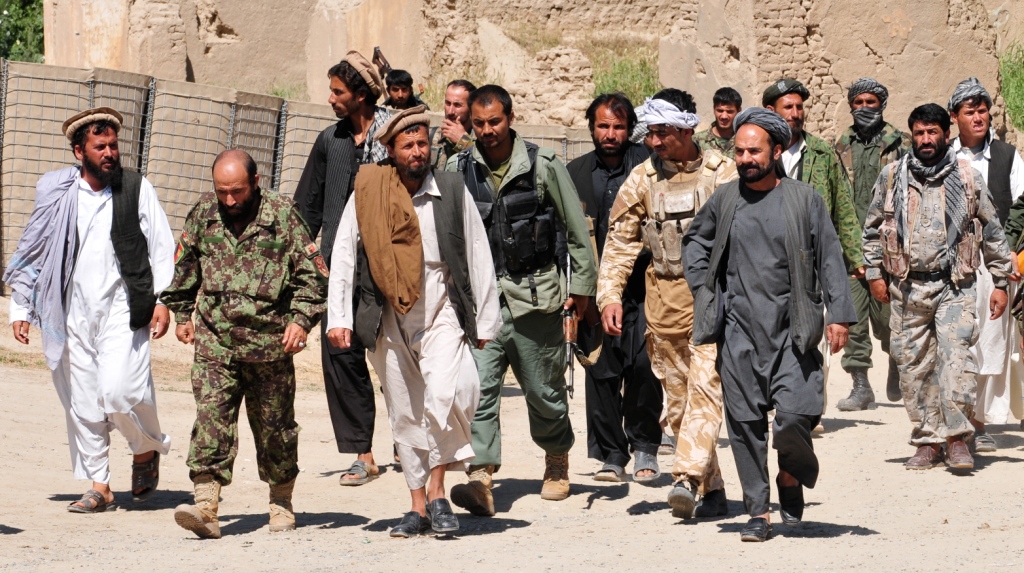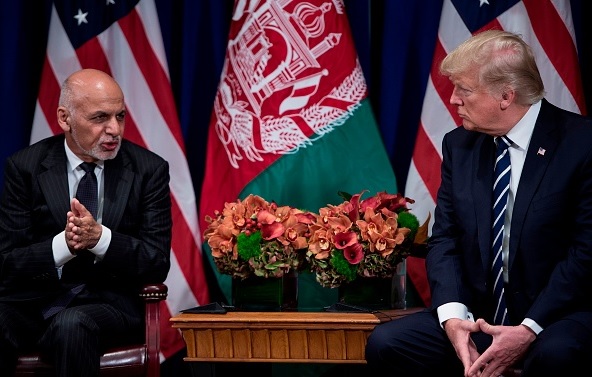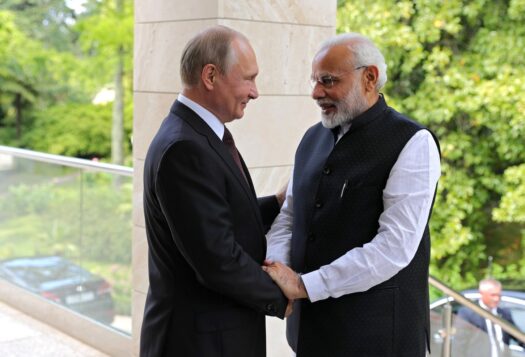
Last Sunday, the New York Times reported that the Trump administration had “instructed its top diplomats to seek direct talks with the Taliban.” One day later, some media reports quoted General John Nicholson, commander of the Resolute Support forces and U.S. forces in Afghanistan, as saying that the United States was ready to engage in direct talks with the Taliban in a bid to kick-start peace negotiations. Although the Resolute Support quickly refuted this statement in an official press release saying Nicholson’s comments were mischaracterized, a potential shift in the U.S. position on the Taliban elicited mixed reactions in Afghanistan and abroad. Concerns over its implications outweighed hopes that it would inject new energy into a stagnant peace process. Direct U.S. talks amount to recognition of the Taliban as more than an insurgent group and may undermine the role of the Afghan government in the peace process.
Reactions Inside and Outside Afghanistan
The Afghan High Peace Council was among the first to welcome the Trump administration’s decision as forward movement on the peace process, but insisted that talks must take place under Afghan leadership. According to local news reports, the Afghan presidential palace and the Afghan senate also stressed the importance of Afghans spearheading peace talks with the Taliban, hinting at concerns within the Afghan government of being left out of a U.S.-led process or being given a marginal role. Outside Afghanistan, however, the Trump administration’s decision has not garnered much support, barring the United Kingdom’s ambassador to Afghanistan, who described the move as “important and welcome.”
The Afghan presidential palace and the Afghan senate stressed the importance of Afghans spearheading peace talks with the Taliban, hinting at concerns within the Afghan government of being left out of a U.S.-led process or being given a marginal role.
The Taliban have not yet officially responded to this development. But some reports indicate that the group sees it as a positive step while also maintaining the precondition of talks on the withdrawal of foreign troops from Afghanistan before discussing the peace process. The Taliban have long demanded direct talks with the United States–in February, the Taliban wrote an open letter in which they urged the “American people” and “peace-loving congressmen” to pressure Trump’s administration to engage in direct peace talks with the group in order to end the war in Afghanistan. The offer was positively received by the Afghan government, but was not met with any clear response from the United States.

Who Wins, Who Loses?
Any hopes that this potential change in the U.S. position on engaging the Taliban will provide a breakthrough in the longstanding stalemate in Afghanistan remains shrouded in doubt and hamstrung by uncertainty. Such a move could only embolden the Taliban further, making the Taliban even more confident in their strength and furthering the perception that the United States is weary of the war, if not completely discouraged.
It seems that the Taliban and their regional supporters are the only winners of this new U.S. decision. Peace talks between the U.S. government and the Taliban will essentially recognize the Taliban as a parallel government, not as an insurgent group, thus undermining the role of the Afghan government.
Both President Ghani and President Trump are relentlessly pushing for peace talks, perhaps in an effort to boast about their success during each of their next presidential campaigns, cementing peace in Afghanistan as their prime legacy. There are three plausible reasons for President Ghani’s enthusiasm for peace talks. First, he hopes to be known as the leader who ended 40 years of war in Afghanistan, as indirectly hinted in his recent opinion piece. Second, by garnering support from the Taliban, Ghani may be able to expand his constituency in the 2019 elections, thus guaranteeing him a landslide victory. Third, peace talks could offset Ghani’s otherwise-poor legacy, tainted by the Taliban’s territorial gains, increases in Afghanistan’s poverty rate and drug production, high fatality rates among Afghan security forces, over three years of delay in the parliamentary elections, and more. However, all of this is conditional on Ghani being able to sell the peace talks as “Afghan-owned” and “Afghan-led,” which the direct U.S.-Taliban discussions potentially threaten. If Afghanistan is sidelined during this process, it could take a huge political toll on President Ghani’s electoral campaign.
President Trump, too, seeks a negotiated end to the United States’ longest war on two counts. First, like President Ghani, he wants to be remembered as the U.S. president to end the longest American war through negotiation. Second, Americans are fed up of a war that has dragged on at an unaffordable and unnecessary cost; it is frustrating for them to hear that even after fighting for 17 years and spending trillions of dollars by some estimates, the Taliban are stronger than ever. Ending the longest U.S. war could greatly boost Trump’s re-election prospects in 2020.
However, it seems that the Taliban and their regional supporters are the only winners of this new U.S. decision. Peace talks between the U.S. government and the Taliban will essentially recognize the Taliban as a parallel government, not as an insurgent group, thus undermining the role of the Afghan government. That is exactly what the Taliban had hoped for. The Taliban knows that they cannot stand the military might of an “invading army,” so they have opted instead to prove that the United States cannot defeat them militarily. By gaining enough strength to convince the United States that the situation in Afghanistan is a stalemate, the Taliban have brought them to the negotiation table.
Peace Talks Within Reach?
Reports suggest that the Afghan government is planning to announce another ceasefire during Eid-ul Adha in August in the hopes of kick-starting peace talks with the Taliban. This plan seems to be motivated by the conclusion reached after the recent Eid-ul Fitr ceasefire that peace talks are within reach, and another unilateral ceasefire will bring all parties one step closer. However, this conclusion is overly naïve because it is difficult to gauge how much the unilateral ceasefire actually helped the peace process; in fact, its harms are slowly becoming evident. Pushing for more such ceasefires will only convey weakness on the part of Afghan government and embolden the Taliban further.
***


